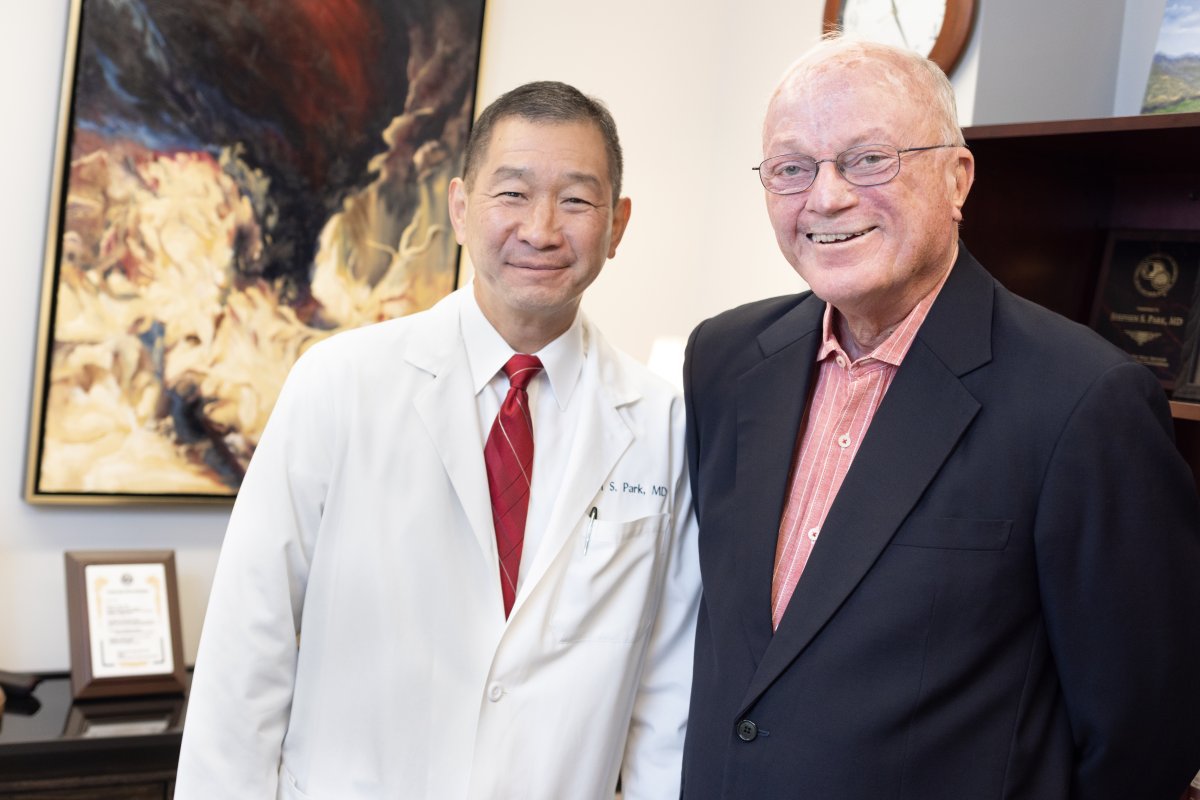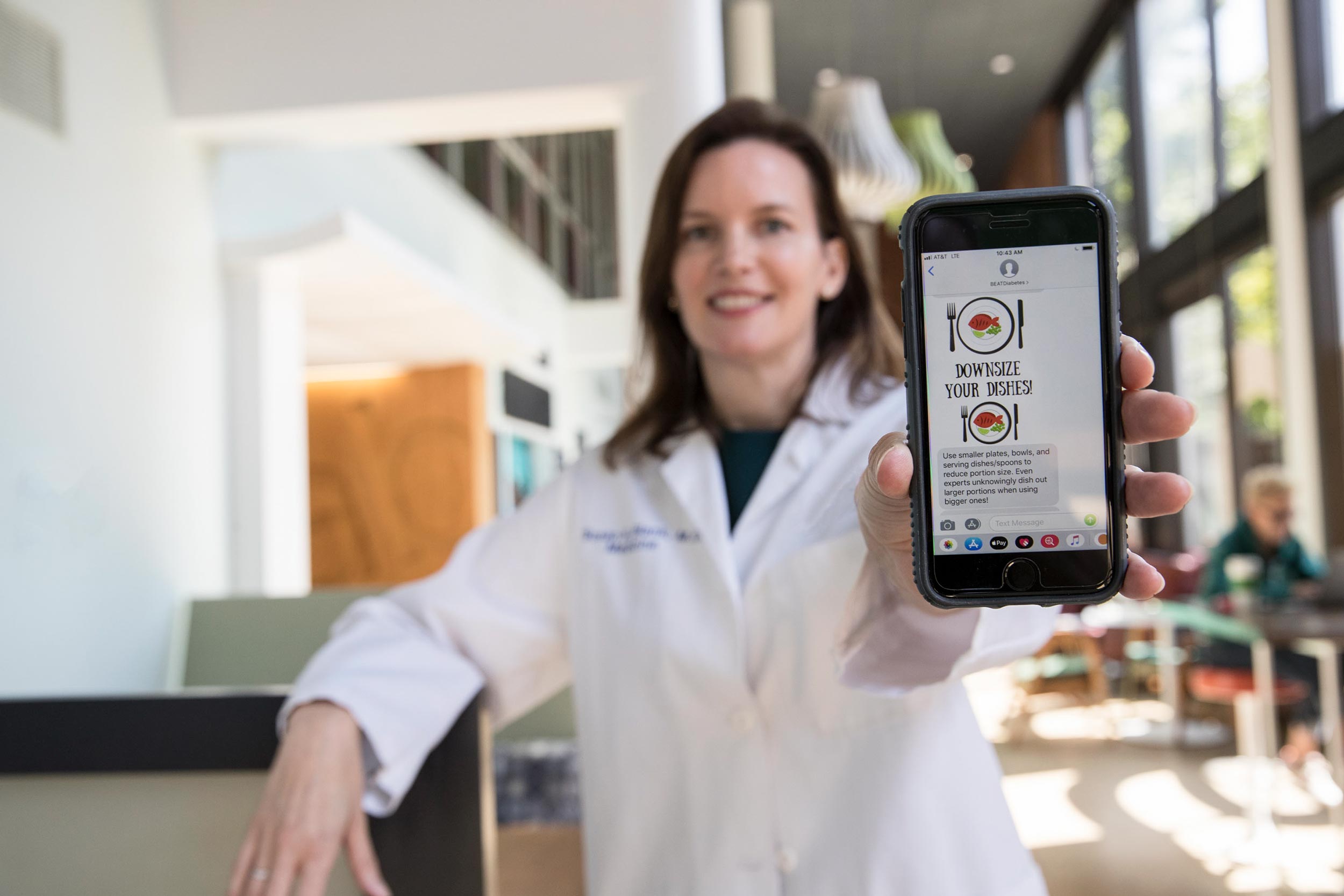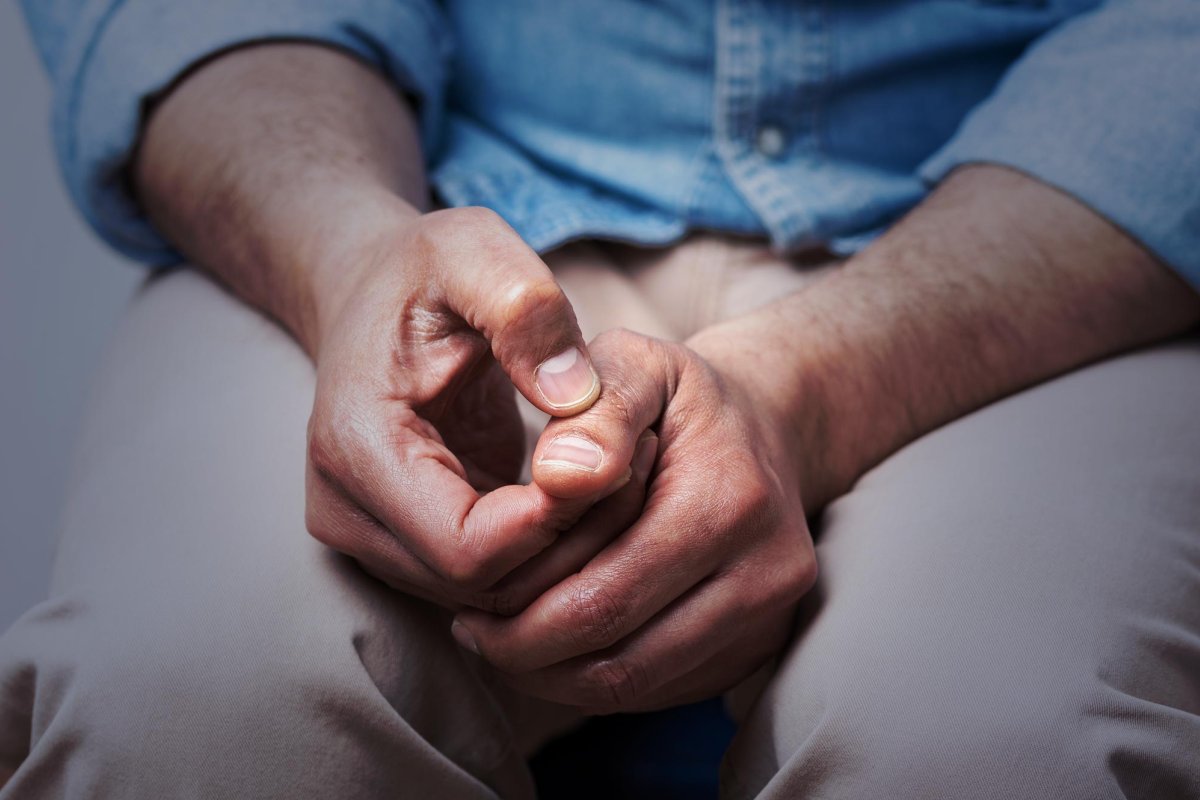Multiplier Effect
As a foreign service officer in the 1960s and 1970s, John “Jack” Reid, now 84 years old, spent many years in Southeast Asia. He was deeply interested in the culture and beauty of the region but says exposure to its intense tropical sunlight contributed to a lifelong health crisis. Reid developed his first skin cancer at just 30 years old.
“When I was growing up in Virginia in the 1940s and 1950s, my friends would sit by the swimming pool and get these beautiful sun tans, and I would turn red and peel,” Reid recalled. “No one told me about wearing a hat or taking care of my skin. No one knew much about skin cancer at all.”
Over the last five decades, skin cancer has remained a recurring issue for Reid, and it brought him to see Stephen S. Park, MD, director of the Division of Facial Plastic and Reconstructive Surgery and chair of the Department of Otolaryngology-Head and Neck Surgery, for the first time in 2002. Reid had been living in Bangkok when he developed a new concerning spot on his forehead. A physician there advised him to continue watching it, but Reid knew something wasn’t right.
“When I arrived back in the States, I saw my dermatologist in Staunton, Virginia,” he said. “He took one look at me and sent me to see Dr. Park.”
Dr. Park said, “Skin cancer is ubiquitous now, especially as the baby boomer generation hits an age when prior sun exposure has done an accumulative amount of damage. Jack’s story is not unique. Long ago, we just did not know the long-term effects of intense sun exposure. Many of us remember being a child and spending hours in the sun without protection—there is nothing we can do to reverse this. Only recently do we see parents bathing their children in sunscreen.”
Reid has undergone several major Mohs surgeries (a specialized method for treating skin cancer lesions) and reconstructive procedures at UVA Health. Along with Mark A. Russell, MD, a specialist in diagnosing and treating common and uncommon skin cancers, Dr. Park has continued to serve as one of Reid’s primary specialists and has witnessed his evolving skin cancer journey firsthand. Deeply grateful for the lifesaving care he’s received, Reid, who’s been donating to UVA Health annually since 2018, says he recently began to think about how he might show his gratitude more permanently.
“During COVID, I decided to use some of my time to think more seriously about estate planning,” he said. “I’ve been very fortunate over the years; I’ve built up my nest egg, but the time will come when I won’t need it any longer. So then what?”
Around this time, Reid remembered receiving a letter from Dr. Park after making one of those annual gifts to UVA Health in Park’s honor. In the letter, Dr. Park expressed his gratitude and shared his division’s commitment to advancing education and training related to facial reconstruction.
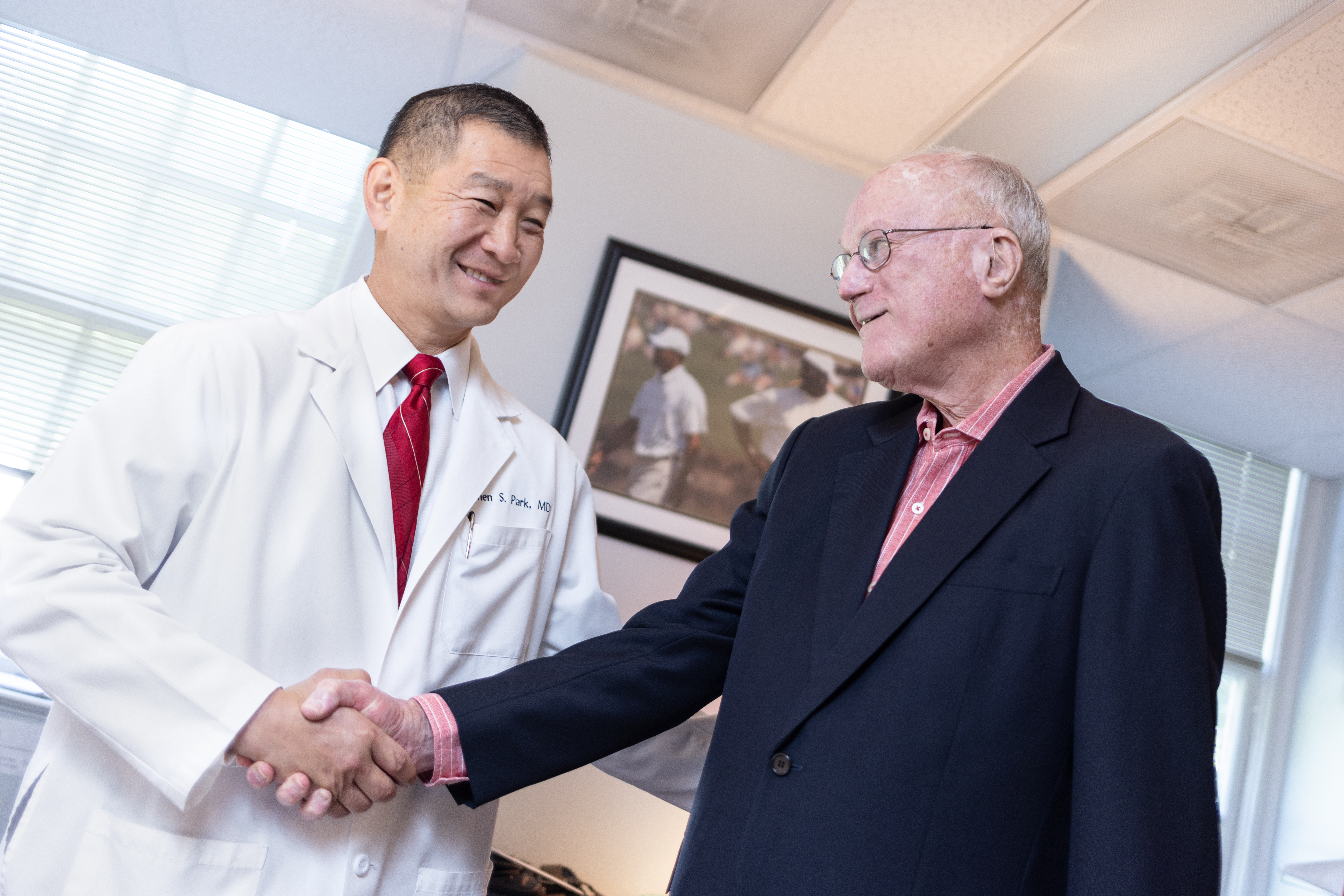
Reid decided then that a meaningful bequest of his estate to support Dr. Park and his colleagues would do more than recognize a physician who changed his own life—it would have a multiplier effect, enabling Dr. Park to educate and train the next generation of innovative surgeons who would share their knowledge and skills with patients like him.
“Education was a big part of my decision,” Reid recalled. “I wanted these assets to be applied where they would have the greatest reach and impact. Dr. Park and his division will benefit, of course, but so will his trainees and the communities they will go on to serve.”
Reid’s decades-long battle against skin cancer continues. In May 2023, Dr. Russell had to remove a significant portion of Reid’s scalp during another Mohs procedure. In previous surgeries, Reid has lost tissue on his nose, cheeks, and forehead. While these procedures have been necessary to prevent further deterioration and damage, Reid credits Dr. Park and the team for helping “put the pieces back together” and enhancing his quality of life.
“Dr. Russell and Dr. Park, they are the two doctors that I can say saved my life on more than one occasion,” said Reid. “I wouldn’t be sitting here now with my round smiling face if it hadn’t been for the two of them.”
While Reid’s gift holds special significance for Dr. Park, it is also one that will continue to advance this critical field, funding innovative research and helping identify new approaches to reconstructive surgery to benefit patients for years to come.
“I am incredibly grateful for Jack’s generosity and his belief in the work we are doing here at UVA,” said Dr. Park. “His gift will make it possible for our division to help even more patients get back on their feet after facial cancer and lead happier, healthier lives.”
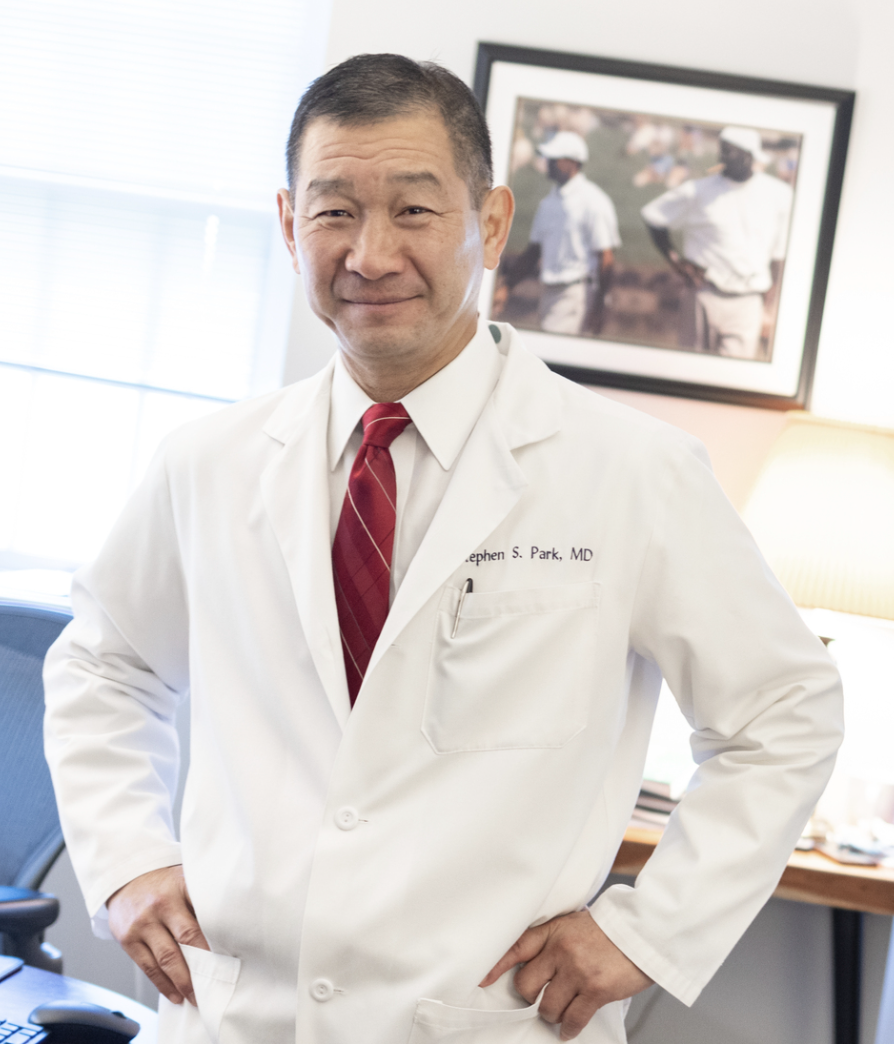
Dr. Park and UVA Health have become a significant part of Reid’s life story; with this gift, they will remain a part of his legacy forever. “I can’t support all worthy causes that need help, but Dr. Park’s care has touched my life in a very meaningful way,” said Reid. “If I can do something to advance and support this particular cause, it’s what I want to do.”
He added, “I have been incredibly fortunate in encountering the doctors at UVA, brilliant people who really care for their patients and who are committed to doing the best medicine they possibly can.”
To learn more about UVA Comprehensive Cancer Center’s care and research, please contact Corley Raileanu at corley@virginia.edu or 434-243-3480.

